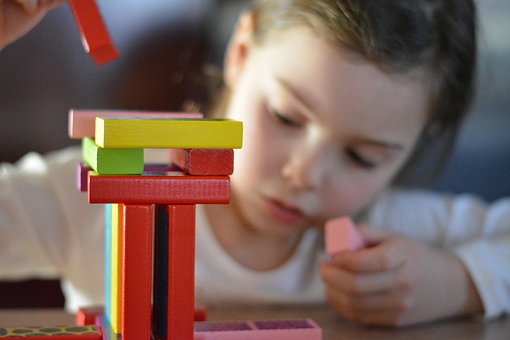Creative Play for the Bored Child
Bored! When there’s nothing to do
Having fun in play or being bored and complaining that “there’s nothing to do” is really a mindset. Many parents have taught their kids that it’s the parent’s job to make sure their children are happy and have things to do. Children have been taught that they deserve to be able to have fun without any effort on their part. They’ve been taught that when they are bored, it’s their parent’s fault or their responsibility to fix the boredom problem.
‘Trouble is, they have been taught wrong. No wonder they expect their parents to meet their needs for entertainment. Children have been trained to expect it.
Well now. How can parents undo what has been done? How can they help their kids figure out ways to be entertained on their own instead of expecting their parents to meet that need?!
So what’s a mom to do when her kids are bored or think there’s nothing to do? Here are some suggestions of things that worked in our home.

Bored? There’s plenty to do!
- Chores provide entertainment. Give him a chore or a job and have him complete it. If he is still bored, give him another job. He will probably find something interesting to do quickly so he won’t need to keep working your list. Oh yes, you can expect him to help with daily activities of living in your house. If he lives there, eats there and sleeps there, he needs to help with the upkeep of his home. So start by making him responsible to keep certain areas clean and presentable. It might be boring, but he can’t complain that he has nothing to do.
- Clean out the toy closet and put one container (such as blocks or Legos or some other former favorite) high enough that he can’t reach it. Sorting and organizing the toys will get his attention and he’ll probably find some toys he hasn’t played with for a while. If he’s still bored, tell him he can play with anything in the closet except for those wooden blocks/Legos/former favorite. You might be surprised at how quickly he will be able to think of things he could do if only he could play with forbidden blocks or other items. Ask me how I know! It’s called reverse psychology, and it works.
- Practice. Have your kids practice a skit or play to perform for the family or a neighbor. Let them choose a story or assign one to them and give them free rein to make costumes and props. They might even have more fun deciding how to do it and practicing than actually doing the performance. This used to keep my kids entertained for hours. They had so much fun perfecting their performance that the actual “program” was less fun than the practicing and coming up with ideas on how to do it. This is a great idea for helping children interact with other folks in a nursing home or other senior citizen event. This will take work on your part – but it will be worth it because they will learn so much (and you will, too.)
- Get involved. Make some playdough (click here for a great recipe). Spend time having a story time. Older kids can read to themselves or to younger kids. By the time story time is done, they will no doubt have thought of something else they could do for entertainment. Give some of your time to play a game with them. If a child is struggling with learning his numbers, play a game like Sorry where he will be exposed to numbers. He will learn while he’s playing. I read several books to our kids – a few chapters at a time – always making certain I stopped at a point of suspense in the story. They clamored for more, were anxious for the next story time, and then were relaxed and ready to go outside and play when downtime was over.
- Reach out to a lonely or hurting neighbor. This will take your time, but you will be modeling some powerful stuff here. Help them mix up some cookies, make a card, and/or go for a visit. Place a phone call or skype with family members or friends who are not at home. Take them with you to visit elderly friends or neighbors, or adopt a grandparent in a nursing home who needs a family. By the time they’re done reaching out, they’ll be ready to come home and “act out” the things they learned.
- Recycle toys and books. Always have a container of toys and books put back, then switch them out two or three times a year. Keep a stash of previously unplayed with toys, books, or new items hidden. On a dark and desperate day, pull out a surprise or two. The kids will love seeing an old toy/game/puzzle or having fun with something new, especially if you take the time to get them started. I used to snarf up items at yard sales to have on hand for a “this is going to be a terrible, horrible, no good, very bad day.”
- When no one gets along. When kids just won’t get along, try this. Have each child choose a toy to play with and put each of them in a different room. Tell them they can’t talk to each other, but can just play alone since they can’t get along anyhow. That happened in our home one day. I had two boys in two different rooms, standing in the doorway looking forlornly at a brother they could not talk to or play with. Suddenly having a playmate was more important than having their own way. I made them work for the privilege of being able to play together. They had plenty of time to think and decide how they could have gotten along earlier and not had this consequence. When I finally lifted the playmate ban, they played together in harmony for hours (as I grinned inside myself the entire afternoon).
- Project Day. When you have a deadline for a project, here’s a suggestion that comes from my experience. When we had four kids under the age of five years, I had some writing deadlines, so Tuesday was declared “Project Day.” After the house was tidied with everyone “helping”, we did a project together. It was simple. Once we went on a walk and gathered as many different colors and shapes of autumn leaves. We placed them inside hard-cover books so they would lie flat. Later, we created a tree on the kitchen wall from the leaves. Choose something that goes with the season or the significance of something happening in their lives. By the time our project was done, it was time for lunch and quiet or nap time. My boys knew that on Project Day I played with them in the morning and in the afternoon they were free to play; however, they could not bother me while I was typing away. I think it worked so well because I poured my heart into them in the morning and they did not feel deprived of attention.

The Balance with Boredom and Entertainment
When a child feels secure from the attention and love you give him, he will more readily go off and entertain himself. When his love tank is low, he will be clamoring for attention. A child who uses his mind will have plenty to do for entertainment. Keep electronic toys and television at a full minimum and you’ll be surprised at how quickly your child’s mind will find things to do that are both educational and entertaining.










Love this! Thanks for all the great ideas. I’m especially interested in trying #7! God bless you for sharing your wisdom to us younger mommy’s!
Thank you, Shirley. I got a lot of my ideas from other moms, and I’m happy to pass them on to others! I’m sure you’ll do the same for other moms someday! 🙂 Blessings as you mother.